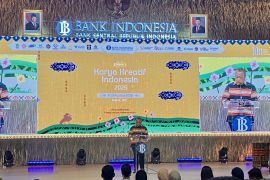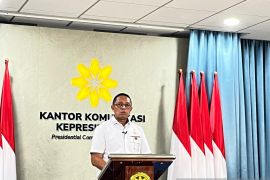"Based on the data we have, there are 141 state companies. However, we have invited representatives from only 110 companies because some of the companies are no longer active, although not yet closed," Dahlan said.
Of the 110 companies invited, some are classified as national resilience companies or `growth engine` firms, while others are categorized as pioneering firms for technology, competitiveness and prosperity, he noted.
"State companies that are not yet included in these categories should cure their illness first and undergo the necessary transformation so they can be in line with the President`s vision," Dahlan added.
The minister pointed out that state firms were established to achieve specific national goals, otherwise the private sector can run businesses better.
Dahlan said the state-owned companies in the food sector were categorized as `strategic businesses` because they dealt with the production of staple food commodities such as rice.
They should get more attention and are therefore included in the national resilience group, he explained.
These companies are also expected to assist the Ministry of Agriculture in managing agricultural matters professionally, Dahlan added.
He pointed out that although many state-owned food companies were listed under the same group, they were not fully merged because of the many complications involved in carrying out mergers.
They are only grouped as a cluster of state-owned food firms, such as Sangyang Sri, Berdikiari, Pertani, Bulog and Pupuk Indonesia, Dahlan stated.
"However, all of these companies face the same problems. Therefore, a common solution should ensure that they no longer compete unfairly as in the past," the minister noted.
While announcing the budget, the President has given directives to the state firms to serve as the two hands of the government by playing their roles efficiently and effectively, he said.
President Yudhoyono also urged state-owned companies to step up efforts to generate more economic activities in anticipation of a global economic crisis.
They should also help strengthen the nation`s food resilience, boost its economic growth, ensure equitably distribution of economic benefits, increase their competitiveness and help reduce foreign debt, he added.(*)
Editor: Heru Purwanto
Copyright © ANTARA 2012











